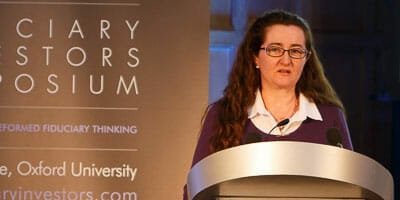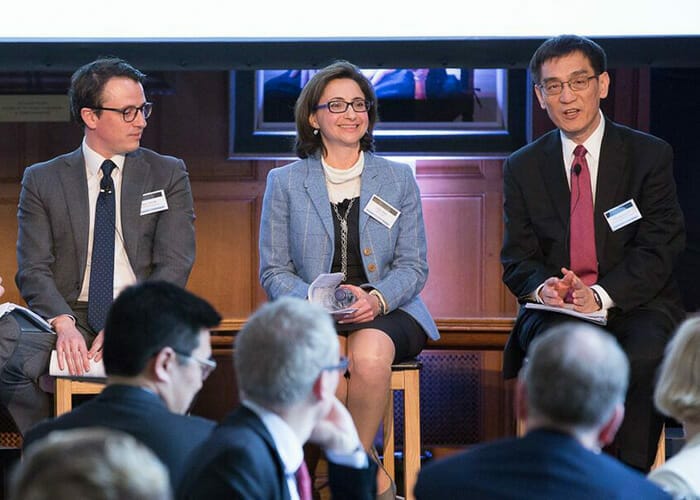Speaking at the Fiduciary Investors Symposium at Oxford University’s Rhodes House Fiona Trafford-Walker, director of consulting at Frontier Advisors argues that Australian investors are operating in a changed environment and need to “get used to slower economic growth.”
Speaking as part of an expert panel on how the continued environment of slow growth and low interest rates will affect global institutional investors, and the best asset allocations to protect their portfolios, Trafford-Walker puts forward the Australian view.
She argues that Australian funds are entering a “brave new world” where returns will be much lower.
The slowdown in China has hit demand for key Australian resource exports with iron ore prices down 60 per cent from their recent highs. Australia’s funds face demographic challenges with a growing elderly population which will also hit GDP growth, she warns.
“By 2025 this demographic wave will cost 0.4 per cent of GDP.” Australia’s mining boom “hid structural problems in our economy which now needs to diversify and become more services led,” she says.
Strategies for Australian funds include reducing target returns and changing asset allocations, she suggests.
Funds could also take on more risk and pursue more active management strategies to “take them over the line.” She notes an appetite amongst funds to “creep up the risk curve to get returns” and a “huge amount of interest in infrastructure,” plus a continued appetite for equity investments but also “equity substitutes” in the hedge fund space. She expects “much greater use of derivatives to offer diversification and to protect downside risk.
Roger Gray, chief executive of USS Investment Management is similarly circumspect.
“We live in period of wealth elusion,” he warns, saying that perceived wealth is greatly exaggerated and funds need to tailor their asset allocation to “make a better job of navigating through a low return future.” Gray says investors are looking at a world where bond yields are significantly lower, “below nominal GDP growth,” and that funds need to diversify better, and more widely, developing alternative beta strategies. USS is pursuing more active strategies and structured positions, he says.
Over investment themes suggested by panel speaker Toby Nangle from Columbia Threadneedle Investments included Japanese equities which are currently “cheaper than they have been” where he suggested “investing tacticly round the edges.”
Short dated sterling debt which he described as “anchored, not volatile” is another investment theme.




